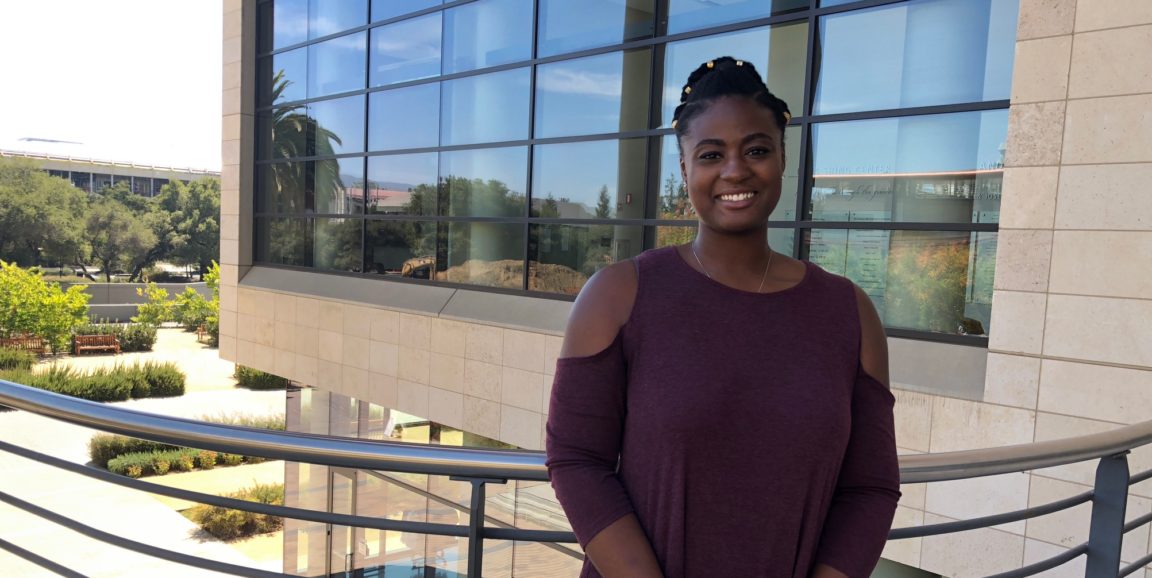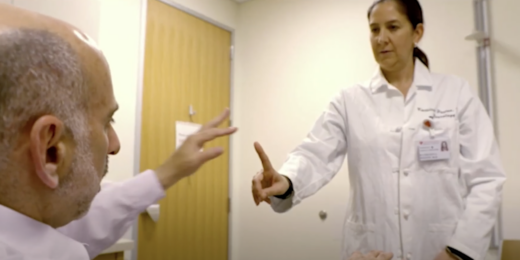With sharp teeth, cape-like wings, keen hunting skills and nocturnal lifestyles, bats figure prominently in Halloween decor. Equally spooky is their ability to harbor dangerous viruses such as Marburg, SARS, Middle East respiratory syndrome, and others.
Dorothy Tovar, a Stanford graduate student in microbiology and immunology, is working to understand how these bats remain healthy while hosting so many viruses. I spoke with her recently to learn more.
What is your current focus?
I study innate immune responses, and stress responses, in bats. I’m trying to understand what is unique about their ecology and evolution at the cellular and molecular level and use that to understand how they’re interacting with these viruses.
Where are you from originally?
I’m born and raised in Boston. Both my parents are immigrants from Haiti. I also briefly lived in Haiti as a child.
How did you first become interested in science?
I knew that I wanted to be a scientist of some sort since I was around 6. In middle school, I told my family I wanted to be a zoologist, which was an uncommon career aspiration, but in a way, not too far off from the work I’m doing now.
I think I’ve always had an innate curiosity to understand how things worked. As I started getting exposed to actual discovery in a lab, the euphoric feeling I got when I discovered something new in an experiment was something I felt could only be experienced in that way in the field of science.
What is most fulfilling about your work?
Looking at the bigger picture, I’m trying to design my thesis in a way that can show a relationship between human behavior and bats, which will hopefully inform policy decisions.
In another light, it's fulfilling that I can pursue my education at Stanford and I get to take my experience here and encourage, and mentor, others.
My mom worked hard to obtain a master's, so there has always been a high precedence of prioritizing education in my family.
What do you want to learn or know how to do that you don’t now?
I’m supposed to learn how to catch bats. I just came back from a wildlife conservation field research training course in the Okavango Delta in Botswana. I got to see them in their natural environment. I really enjoyed it despite my fears. Now, I’m really excited to learn how to catch bats.
What is your ultimate career goal?
I’m all over the place. I’m thinking about international science policy. I’m also really interested and passionate about science education and outreach, either in higher education helping diverse students make it through graduate school or advocating for science education policy. Non-profit work on a global scale is also something I’ve considered.
Whatever I do will definitely have something to do with policy, because I want to make a direct change in how science affects our daily lives.
How do you unwind?
I really like listening to live music. I love '90s R&B. My favorite artist currently is Syd from the Internet.
I also read a lot. I just read Children of Blood and Bone. It’s been described as Harry Potter meets Wakanda, and I totally recommend it.
What are your favorite foods?
I love Caribbean food. It reminds me of home. Plantains, different types of rices that all have authentic spices, curry, and oxtail.
Do you have any rituals or things to have or do before you can get into the mode to work?
When I start my day, I like to spend an hour doing prayer and meditation. My spiritual life is very important to me. It really anchors me and helps prioritize what’s important. Being a PhD student working on such a specialized, narrow subject, it’s easy to forget the bigger picture and what matters in life.
It helps me set a tone for the rest of the day.
Do you have a mantra you live by?
Leave things and people better than how you found them.
In the Spotlight, formerly known as Stars of Stanford Medicine, features standout scholars in the School of Medicine.
Photo by Roxanne Ohayon




